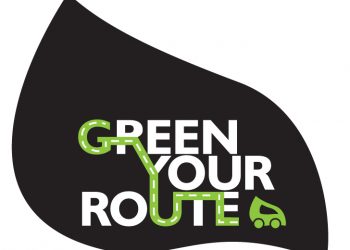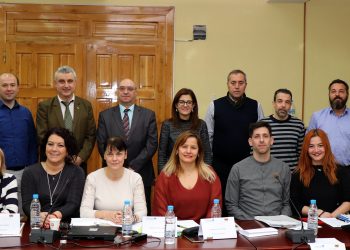Background5 Balkan-Med countries
In agreement with the directions of the BMP framework, the project aims to capitalize on results from past projects, namely digital tools/services produced within the “Digital Convergence” framework and the “AGRO-LESS” project (ETCP Greece-Bulgaria 2007-13) and expand/customize their use into the territories of five (5) Balkan-Med countries (GR, BG, AL, Rep. of North Macedonia and CY) in order to promote governance capacity and legal framework delivery in the three aforementioned fields.
A common need was identified by the iBEC (LP) which addressed the Ministry of Rural Development & Food of Greece (Observer partner) and the Ministry of Tourism and Environment of Albania (PP5) and jointly initiated a consultation procedure among stakeholders of the Balkan-Med area.
The process resulted into the development of the present partnership that includes the involvement of Ministries from four (4) participating countries. Partners jointly shaped the specific project idea and contributed to the project’s detailed design through meetings and efforts that took place since the beginning of January 2016. These efforts resulted in creating communication channels and in developing this Project Proposal through joint coordinated efforts.
Project Scope3 Fields
The Re-Source project tackles the need for improved transnational governance capacity in relation to the following three fields:
Irrigational water management
Codes of good agricultural practices (CGAP)
Soil erosion risk assessment
The Re-Source project reflects the jointly identified need to strengthen the collaboration between the competent authorities and institutions of the participating countries, capitalizing on experiences and results achieved in past projects, with the aim to improve their existing institutional capacity in terms of natural resources management and related legal framework implementation.
The project is based on the system of digital services already established within i-BEC (LP organisation) and will further develop, focusing on the following three tools/services:
Application of precise irrigation
A digital model for the application of precise irrigation in space and time will be further upgraded, customized and applied within the Greek and Albanian territories.
Application of codes of good agricultural practices
A digital tool for the evaluation of the implementation of the CGAP (a set of more efficient, environmentally friendly practices in agriculture) will be customized and applied within the Cyprus and Rep. of North Macedonia territories.
Application of soil erosion risk assessment
a digital model for the large-scale risk assessment of soil erosion will be customized for use within the Bulgarian territory. Other foreseen outputs of the project include legal framework, present state and end user requirements analyses, evaluation reports, large-scale strategic studies, and training seminars (towards the public administration) on the use of the digital tools, water and soil resource management, good agricultural practices and related legal framework delivery.
Apart from the application of digital services (pilot operation actions) evaluation reports, guidelines & training seminars (towards the public administration) will also take place focusing on the use of digital tools, water & soil resource management, good agricultural practices & related legal framework implementation.
Objectives5 Sub-objectives
The overall objective of Re-Source is the enhancement of the capacity of the public administration in relation to soil and water resources management, environmental protection and related legal framework implementation, where everything will be accessible to all and not causing destortion of the market.
The project’s overall objective aims to increase the governance capacity and corresponding delivery regarding environmental legislation.
The sub-objectives of the project are:
The upgrade and customization of existing digital tools and services concerning the application of:
1) Precise irrigation.
2) Evaluation of codes of good agricultural practices and 3) large-scale soil erosion risk assessment.
The delivery of these open source tools and services to end users from the local public administration authorities of five (5) countries (GR, BG, AL, Rep. of North Macedonia and CY).
The provision of scientific and technical support and the conduction of training seminars and workshops targeting the personnel of public authorities focusing on the use of the digital tools/services, water and soil resource management, good agricultural practices and related legal framework implementation.
The diffusion of knowledge to all interested parties and individuals and the raise of public awareness on environmental issues and regulatory commitments.
The strengthening of the bond and mutual appreciation between the participating countries and cooperating bodies.
Contributionto other EU, National, Regional & Local Policies
The project is promoting the Europe 2020 Strategy for smart and sustainable growth through the delivery of digital services and advanced technological tools aiming at the enhancement of the institutional capacity on natural resources management and corresponding environmental legislation delivery.
The project is also in line:
With the EU policies on water and soil resources management, namely the frameworks deriving from the Water Framework Directive (2000/60/EC) and the Soil Thematic Strategy (COM(2012) 46)
With the ECO-Innovation initiative that focuses on green technologies and supports the transition to a resource-efficient economy.
With the targets set by the EU Rural Development Policy and the new Common Agricultural Policy (CAP) which attempt to integrate environmental regulatory commitments into agricultural production activities.
On a national, regional and local level the project is also coherent with the corresponding policies on sustainable development, since the five participating countries are either already abiding to EU legislation (as Members of the EU) or in a process of integration with it (IPA countries). Within this context, the project is expected to act complementary to the relevant individual regional and sectoral strategies of the participating regions/countries, a fact that is clearly indicated by the participation (as end users/beneficiaries) in the current project of Ministries (plus one as Observer) and one Regional Authority.
Target Groups& beneficiaries
The project’s main target groups & beneficiaries are the public bodies participating in the project as well as any other body whose personnel will take part in the training seminars or make use of the digital tools and guidelines provided by the project.
Through the provision of the aforementioned services & accompanied scientific & technical support, public authorities will gain tools & skills aligned with the latest scientific knowledge so as to deal better with sustainable resources management & monitoring of national and EU environmental targets.
Other direct beneficiaries of the project may be considered to be the inhabitants of the territories of the participant bodies (especially within the study areas) that will benefit from the improved management & monitoring of the local soil & water resources.
Lastly, the project may also prove beneficial for bodies, groups & individuals from other geographical areas which may find aid & guidance for the implementation of similar future projects.
All services, activities & results of the project will be accessed by all, through open data protocols. Also, the results will not be used to make profit, thus there is no comparative advantage of the partners.


